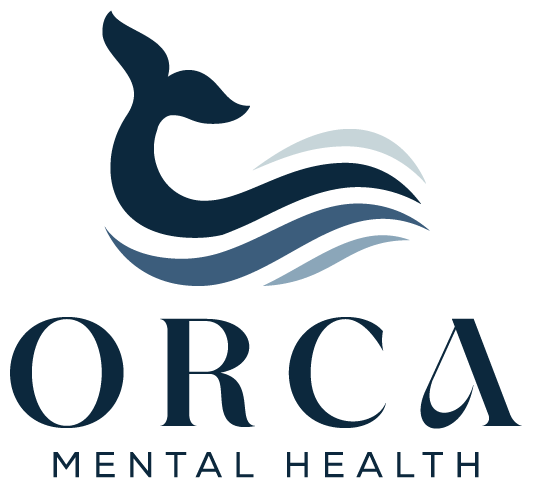The Wisdom of Wolves: A Symbol of Mental Health and Recovery
During my own journey through mental health and substance use recovery, I have found the connection with dogs and all animals to be transformative. Outside of my role as clinical director at OMH, I volunteer with a wolf conservation and education group. On a monthly basis, I witness people meet these wolves for the first time and they are in complete awe. Staff at OMH will not be surprised that I elected to write a blog about wolves and recovery. My office has this great photography piece of two coastal wolves howling by the beach.
Across cultures,wolves are a part of people’s religions, spirituality, culture, and healing. In many ways, the journey of mental health and substance use recovery mirrors the life of a wolf—facing adversity, relying on support, and embracing transformation.
The Two Wolves: A Battle Within
I read this story with clients during group therapy at OMH. I have received really powerful feedback from folks after they take time to really connect with this story:
A well-known Cherokee story describes a conversation between a grandfather and his grandson.
One evening, an elderly Cherokee brave told his grandson about a battle that goes on inside people. He said, “My son, the battle is between two ‘wolves’ inside us all. One is evil—it is anger, envy, jealousy, sorrow, regret, greed, arrogance, self-pity, guilt, resentment, inferiority, lies, false pride, superiority, and ego. The other is good—it is joy, peace, love, hope, serenity, humility, kindness, benevolence, empathy, generosity, truth, compassion, and faith.” The grandson thought about it for a minute and then asked his grandfather, “Which wolf wins?” The old Cherokee simply replied, “The one that you feed.”
This story is a powerful metaphor for mental health and recovery. Addiction and emotional struggles often stem from “feeding the dark wolf” —negative thought patterns, unhealthy coping mechanisms, and isolation. Recovery is about intentionally choosing to feed the light wolf—self-compassion, connection, and personal growth. I also encourage clients to be willing to reflect on their dark wolf as it may resemble survival mechanisms and other underlying factors that could be contributing to their mental health and/or substance use concerns.
The Lone Wolf vs. The Pack: The Power of Connection
One of the biggest misconceptions about wolves is the idea of the “lone wolf” as a symbol of strength and independence. In reality, wolves are highly social animals that thrive within their pack, relying on each other for survival (Mech & Boitani, 2003).
Similarly, recovery is not meant to be a solitary journey. Research shows that strong social support plays a critical role in mental health and substance use recovery (Kelly et al., 2017).
At OMH we require as part of clients’ treatment that they attend support groups whether it is through 12-step groups, Wellbriety, SMART, Refuge/Dharma Recovery, church, or other agreed upon support groups
Just as wolves lean on their pack, individuals benefit from connection—whether through therapy, support groups, or trusted loved ones.
Resilience in the Face of Adversity
Wolves are known for their ability to survive in harsh environments, adapting to challenges such as food scarcity and territorial conflicts (Mech, 1995). In recovery, resilience is just as crucial. Setbacks and struggles are part of the process, but they do not define the journey—how we respond does (Southwick et al., 2014). At OMH, we encourage clients to learn to reprocess their challenges, via therapies such as EMDR, CPT, exposure-based, or in group format.
Building resilience involves:
Developing healthy coping strategies (e.g., mindfulness, therapy, exercise)
Strengthening emotional regulation skills
Accepting setbacks as opportunities for growth
Practicing self-compassion and patience
Just as a wolf learns to navigate changing landscapes, individuals in recovery learn to adapt, heal, and move forward.
Transformation and the Wolf’s Journey
Wolves grow from playful pups into wise leaders of their pack. They learn, evolve, and survive. In many Indigenous cultures, wolves represent transformation and personal growth (Brown, 2009).
Recovery is also a process of transformation. Individuals are not defined by their past struggles but by their capacity to change. The journey is about shedding old patterns, embracing new perspectives, and stepping into a stronger, healthier version of oneself.
Which Wolf Will You Feed?
The wisdom of the wolf reminds us that recovery is not just about surviving—it is about thriving. We all have the dark wolf and the light wolf inside us. The path to healing is about choosing, every day, which one to nourish.
If you or a loved one needs support, Oceanside Mental Health is here to help. Reach out to us at (760) 400-6082 or info@oceansidemh.com.
References
- Brown, J. E. (2009). Teaching Spirits: Understanding Native American Religious Traditions. Oxford University Press.
Kelly, J. F., Greene, M. C., & Bergman, B. G. (2017). “Beyond abstinence: Changes in indices of quality of life with time in recovery in a nationally representative sample of U.S. adults.” Alcoholism: Clinical and Experimental Research, 41(4), 759-768.
Mech, L. D. (1995). “A ten-year history of the demography, behavior, and condition of a Minnesota wolf pack.” Biological Conservation, 71(3), 261-273.
Mech, L. D., & Boitani, L. (2003). Wolves: Behavior, Ecology, and Conservation. University of Chicago Press.
Southwick, S. M., Bonanno, G. A., Masten, A. S., Panter-Brick, C., & Yehuda, R. (2014). “Resilience definitions, theory, and challenges: Interdisciplinary perspectives.” European Journal of Psychotraumatology, 5(1), 25338.
Two Wolves can be read at https://www.nanticokeindians.
Acknowledgment and Disclaimer
I want to acknowledge that I am a white psychologist drawing on Indigenous wisdom in this discussion. The “Two Wolves” story, often attributed to the Cherokee people, has been widely shared in Western culture, sometimes with variations that may not fully reflect its origins. It is essential to honor Indigenous traditions, stories, and knowledge by learning from and supporting Indigenous voices directly.
For those interested in Indigenous perspectives on healing, I encourage you to explore the work of Native mental health professionals and organizations. If you or someone you know is Indigenous and seeking culturally informed mental health resources, the following organizations offer support:
National Native American Boarding School Healing Coalition (www.boardingschoolhealing.org
) – Supports healing from historical trauma. WeRNative (www.wernative.org) – A health resource for Native youth by Native youth.
StrongHearts Native Helpline (1-844-762-8483, www.strongheartshelpline.org) – Culturally appropriate support for domestic and sexual violence survivors.
The Indigenous Wellness Research Institute (www.iwri.org) – Focuses on Indigenous well-being and mental health research.
Honoring Indigenous traditions means engaging with their wisdom respectfully and supporting Indigenous-led mental health initiatives.

